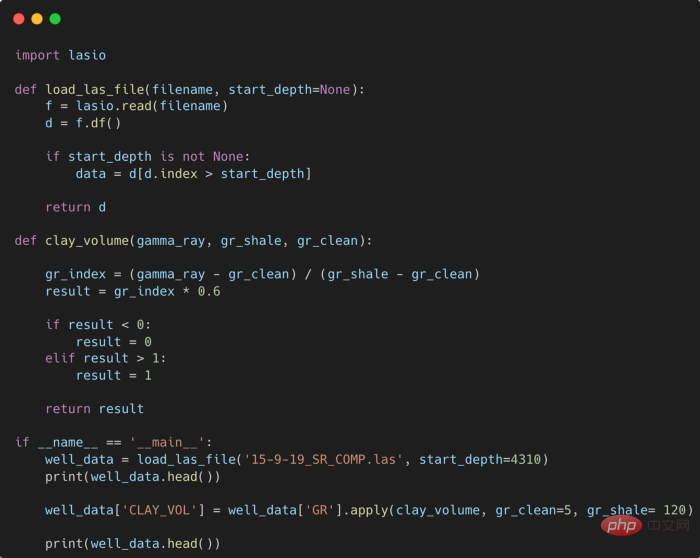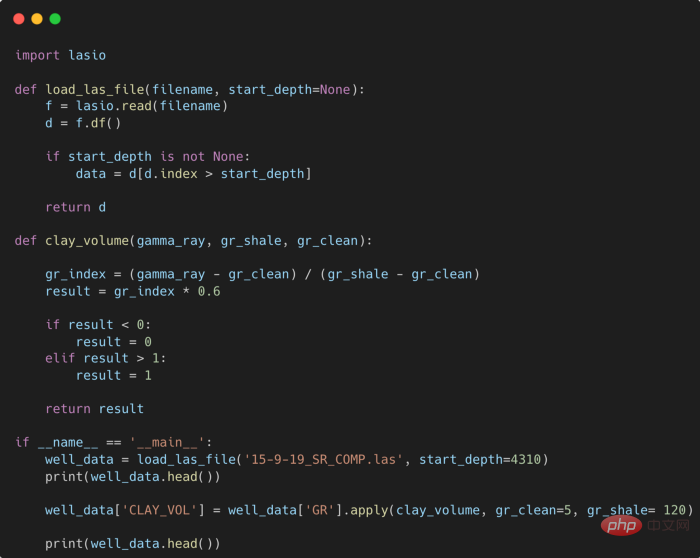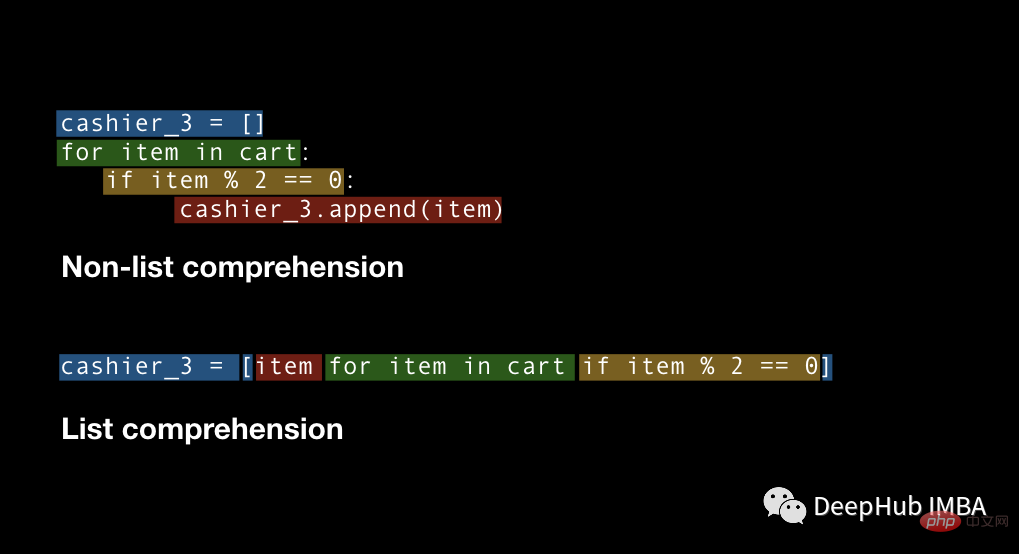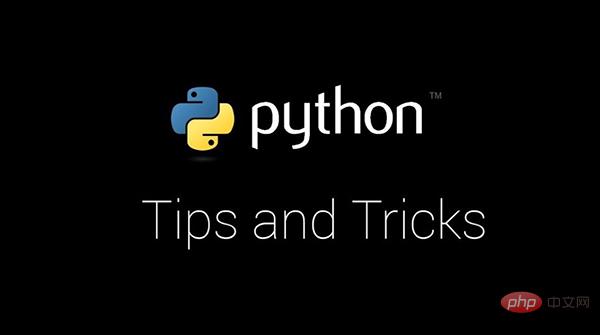Several often overlooked but useful tags in the php smarty template engine are organized, including the capture tag, config_load tag, php tag, strip tag, fetch tag, and how to use define directly in the smarty template. constants, this article will analyze them one by one with specific examples:
capture tag
The Chinese meaning of capture is capture. Its function is to capture the data output by the template. When we need it, call it to get the purpose of capturing the data. Examples below:
{capture name="test"}
<img src="/static/imghwm/default1.png" data-src="testimg.jpg" class="lazy" alt="6 smarty tips_PHP tutorial" >
{/capture}
<div class="image">
{$smarty.capture.test}
</div>
Note: The content between {capture name="test"} and {/capture} is stored in the variable $test, which is specified by the name attribute. Access this in the template through $smarty.capture.test Variable. If the name attribute is not specified, the function will use "default" as the parameter by default, which is similar to the clone method in jquery.
config_load tag
config_load can directly read the contents of the file, which can save the assign step. The following usage example:
test.csv file:
pageTitle = "config_load_test" bodyBgColor = "#eeeeee" img = "girl.jpg" width="100" height="100"
Then the template index.tpl file can reference the above test.csv file as follows:
{config_load file="test.csv"}
<html>
<title>{#pageTitle#}</title>
<body bgcolor="{#bodyBgColor#}">
<img src="/static/imghwm/default1.png" data-src="{#img#}" class="lazy" style="max-width:90%" height="{#height#}" alt="6 smarty tips_PHP tutorial" >
</body>
</html>
Note: If a problem like Warning: Smarty error: unable to read resource occurs during the above process, please check whether your test.csv is placed in the smarty configuration directory. The default configuration directory is configs Table of contents.
php tag
When you are used to assigning, have you ever thought about writing PHP code directly in the template file? Although it is highly not recommended, but sometimes you have to do this due to business needs. What should I do? What to do? Take a look at this example:
{php}
global $result;
foreach($result as $key=>$value){
echo "key=$key,value=>$value<br>";
}
{/php}
strip tag
The function of thestrip tag is to remove spaces and carriage returns within tags. I personally feel that this tag is quite useful. It can compress the final output HTML format. If you want to see the effect, just look at the source code of this website. Yes, isn’t it cool, haha:
{strip}
<div>
<font color="red">strip</font>
<span>
<div>php smarty strip 压缩html输出,www.phpernote.com 看源码效果</div>
</span>
</div>
{/strip}
fetch tag
The fetch tag has similar functions to the function file_get_contents in PHP. Both can read the contents of the file, and the read result can be assigned to a variable in the form of a string, as shown in the following use case:
{fetch file="./aaaa.txt" assign="result"}
{if is_array($result)}
<b>is array</b>
{else if}
<b>not array</b>
{/if}
Constants defined using define in php can be used directly in smarty templates
How to use it:
{$smarty.const.你定义的常量名}Articles you may be interested in
- Tips for using MVC pattern in php
- Eight classic tips for Linux operating system applications
- smarty Summary of variable operators
- 10 very practical advanced application skills in PHP
- Smarty template retained variable summary
- Improve database performance and reveal SQL optimization skills
- smarty Summary of logical operation symbols
- smarty include file Methods of using variables
 提高 Python 代码可读性的五个基本技巧Apr 12, 2023 pm 08:58 PM
提高 Python 代码可读性的五个基本技巧Apr 12, 2023 pm 08:58 PMPython 中有许多方法可以帮助我们理解代码的内部工作原理,良好的编程习惯,可以使我们的工作事半功倍!例如,我们最终可能会得到看起来很像下图中的代码。虽然不是最糟糕的,但是,我们需要扩展一些事情,例如:load_las_file 函数中的 f 和 d 代表什么?为什么我们要在 clay 函数中检查结果?这些函数需要什么类型?Floats? DataFrames?在本文中,我们将着重讨论如何通过文档、提示输入和正确的变量名称来提高应用程序/脚本的可读性的五个基本技巧。1. Comments我们可
 使用PHP开发直播功能的十个技巧May 21, 2023 pm 11:40 PM
使用PHP开发直播功能的十个技巧May 21, 2023 pm 11:40 PM随着直播业务的火爆,越来越多的网站和应用开始加入直播这项功能。PHP作为一种流行的服务器端语言,也可以用来开发高效的直播功能。当然,要实现一个稳定、高效的直播功能需要考虑很多问题。下面列出了使用PHP开发直播功能的十个技巧,帮助你更好地实现直播。选择合适的流媒体服务器PHP开发直播功能,首先需要考虑的就是流媒体服务器的选择。有很多流媒体服务器可以选择,比如常
 PHP中的多表关联查询技巧May 24, 2023 am 10:01 AM
PHP中的多表关联查询技巧May 24, 2023 am 10:01 AMPHP中的多表关联查询技巧关联查询是数据库查询的重要部分,特别是当你需要展示多个相关数据库表内的数据时。在PHP应用程序中,在使用MySQL等数据库时,多表关联查询经常会用到。多表关联的含义是,将一个表中的数据与另一个或多个表中的数据进行比较,在结果中将那些满足要求的行连接起来。在进行多表关联查询时,需要考虑表之间的关系,并使用合适的关联方法。下面介绍几种多
 提高Python代码可读性的五个基本技巧Apr 11, 2023 pm 09:07 PM
提高Python代码可读性的五个基本技巧Apr 11, 2023 pm 09:07 PM译者 | 赵青窕审校 | 孙淑娟你是否经常回头看看6个月前写的代码,想知道这段代码底是怎么回事?或者从别人手上接手项目,并且不知道从哪里开始?这样的情况对开发者来说是比较常见的。Python中有许多方法可以帮助我们理解代码的内部工作方式,因此当您从头来看代码或者写代码时,应该会更容易地从停止的地方继续下去。在此我给大家举个例子,我们可能会得到如下图所示的代码。这还不是最糟糕的,但有一些事情需要我们去确认,例如:在load_las_file函数中f和d代表什么?为什么我们要在clay函数中检查结果
 Python中简单易用的并行加速技巧Apr 12, 2023 pm 02:25 PM
Python中简单易用的并行加速技巧Apr 12, 2023 pm 02:25 PM1.简介我们在日常使用Python进行各种数据计算处理任务时,若想要获得明显的计算加速效果,最简单明了的方式就是想办法将默认运行在单个进程上的任务,扩展到使用多进程或多线程的方式执行。而对于我们这些从事数据分析工作的人员而言,以最简单的方式实现等价的加速运算的效果尤为重要,从而避免将时间过多花费在编写程序上。而今天的文章费老师我就来带大家学习如何利用joblib这个非常简单易用的库中的相关功能,来快速实现并行计算加速效果。2.使用joblib进行并行计算作为一个被广泛使用的第三方Python库(
 四种Python推导式开发技巧,让你的代码更高效Apr 22, 2023 am 09:40 AM
四种Python推导式开发技巧,让你的代码更高效Apr 22, 2023 am 09:40 AM对于数据科学,Python通常被广泛地用于进行数据的处理和转换,它提供了强大的数据结构处理的函数,使数据处理更加灵活,这里说的“灵活性”是什么意思?这意味着在Python中总是有多种方法来实现相同的结果,我们总是有不同的方法并且需要从中选择易于使用、省时并能更好控制的方法。要掌握所有的这些方法是不可能的。所以这里列出了在处理任何类型的数据时应该知道的4个Python技巧。列表推导式ListComprehension是创建列表的一种优雅且最符合python语言的方法。与for循环和if语句相比,列
 Python编程进阶,常用八大技巧!Apr 18, 2023 am 09:34 AM
Python编程进阶,常用八大技巧!Apr 18, 2023 am 09:34 AM整理字符串输入整理用户输入的问题在编程过程中极为常见。通常情况下,将字符转换为小写或大写就够了,有时你可以使用正则表达式模块「Regex」完成这项工作。但是如果问题很复杂,可能有更好的方法来解决:user_input="Thisnstringhastsomewhitespaces...rn"character_map={ord('n'):'',ord('t'):'',ord('r'):None}user_input.translate(charact
 如何使用PHP和Smarty实现前后端分离开发Jun 25, 2023 pm 01:46 PM
如何使用PHP和Smarty实现前后端分离开发Jun 25, 2023 pm 01:46 PM在现代web开发中,前后端分离已经成为了一个非常流行的趋势,它能够让开发者们更好地组织项目并且提高了项目开发的效率。PHP和Smarty是两个非常常用的技术,它们可以用来实现前后端分离的开发方式。本文将会介绍如何使用PHP和Smarty来实现前后端分离开发。什么是前后端分离开发在传统的web开发中,前端主要负责页面的呈现以及与后端交互的逻辑。后端则主要负责业


Hot AI Tools

Undresser.AI Undress
AI-powered app for creating realistic nude photos

AI Clothes Remover
Online AI tool for removing clothes from photos.

Undress AI Tool
Undress images for free

Clothoff.io
AI clothes remover

AI Hentai Generator
Generate AI Hentai for free.

Hot Article

Hot Tools

SublimeText3 Mac version
God-level code editing software (SublimeText3)

SAP NetWeaver Server Adapter for Eclipse
Integrate Eclipse with SAP NetWeaver application server.

Atom editor mac version download
The most popular open source editor

mPDF
mPDF is a PHP library that can generate PDF files from UTF-8 encoded HTML. The original author, Ian Back, wrote mPDF to output PDF files "on the fly" from his website and handle different languages. It is slower than original scripts like HTML2FPDF and produces larger files when using Unicode fonts, but supports CSS styles etc. and has a lot of enhancements. Supports almost all languages, including RTL (Arabic and Hebrew) and CJK (Chinese, Japanese and Korean). Supports nested block-level elements (such as P, DIV),

SecLists
SecLists is the ultimate security tester's companion. It is a collection of various types of lists that are frequently used during security assessments, all in one place. SecLists helps make security testing more efficient and productive by conveniently providing all the lists a security tester might need. List types include usernames, passwords, URLs, fuzzing payloads, sensitive data patterns, web shells, and more. The tester can simply pull this repository onto a new test machine and he will have access to every type of list he needs.







